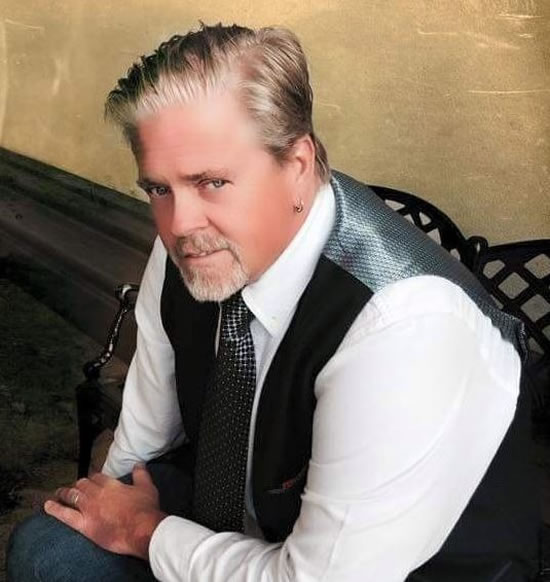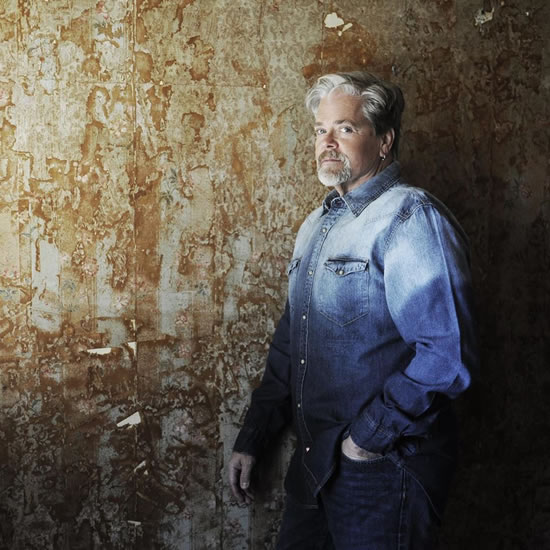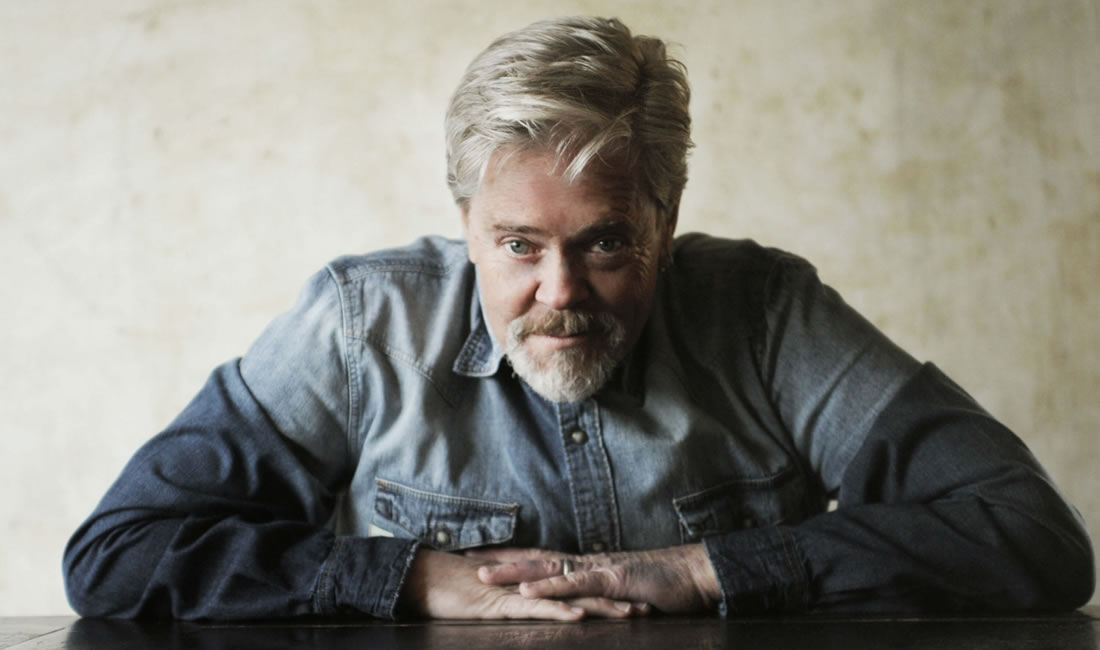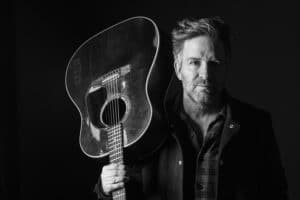Newgrass pioneer John Cowan: ‘I couldn’t deny my recovery’
Newgrass pioneer John Cowan: 'I couldn't deny my recovery'

For newgrass pioneer, singer-songwriter and auxiliary Doobie Brothers member John Cowan, his own recovery is proof of that statement, he told The Ties That Bind Us recently. After getting clean in 1987, he enjoyed 12 years of continuous recovery until it all unraveled. One of the guys he sponsored came to see Cowan perform with The Sky Kings, a country supergroup of sorts that Cowan was in with Bill Lloyd (of Foster and Lloyd), Patrick Simmons of the Doobies and Rusty Young of Poco.
“He had two sons and a wife, and I actually lived with them for a a while; I was like ‘Uncle John’ to the boys, and one night, because they had never seen me play, he brought them to the show,” Cowan said. “After the show, we all went out to eat, and it was pretty late, and when they left Nashville to drive back to Watertown, they got plowed into by a drunk driver. My friend was killed, and his 8-year-old son was killed also, and it just crushed me. I didn’t blame God, but I didn’t understand the whole thing.
“My recovery was already on precarious ground at that point. Between what happened to them and taking my recovery for granted and having neck surgery, the next thing I know, I was out of the rooms for six years — doing heroin, doctor shopping for opiates, being a knucklehead, the whole nine yards, so that ended my 12 years of being clean. Twelve years ago this February, I made it back. I’m not unique, but I think it’s good for people to hear that there are some of us who can get double digits, go back out and somehow make it back.”
A legacy cemented, a future still being written

After New Grass Revival released its last album in 1989, the members went on to individual acclaim: Fleck formed the jazz-grass fusion band Bela Fleck and the Flecktones; Sam Bush became one of the most in-demand mandolin players in the industry; and Pat Flynn and Cowan went on to respectable solo careers.
After stretching his legs on “Soul’d Out” in 1998 and 2000’s eclectic self-titled album, his first for roots music label Sugar Hill, Cowan came back to the sounds of New Grass Revival with “Always Take Me Back,” his 2002 studio effort. With “New Tattoo” in 2006, he stretched his artistic wings in another direction, into the realm of therapy. The final song on that record, “Drown,” deals with an intensely personal experience: childhood sexual abuse. In 2010, he released “The Massenburg Sessions,” a collaboration with veteran producer George Massenburg that resulted in a collection of intimate living-room style songs with friends like Del McCoury. In 2014, he released “Sixty,” produced by his John McFee of the Doobie Brothers, a band for whom he started playing in the early 1990s and has been a part of recently since 2009.
“It’s great; they’re really good guys who are all grandparents and all way past living the rock ‘n’ roll lifestyle,” Cowan said with a chuckle. “They’re just a bunch of adults touring around and playing music, and it’s been a total blessing to my family. When the economy collapsed in 2008, my wife got fired from a job that December, and I was doing to playing with just a trio, and it was terrible. But then in April, I got the call from them, and it’s really changed my life for my family and myself in a very positive way.”
With the Doobies as his bread and butter, however, time for his own projects is thin. He’s got a few irons in the fire, but a new record of John Cowan material is still gestating. (He did, however, release an album with a new band, Button, which he describes as “hillbilly prog rock” and features contributions from touring members of Chicago and the Doobies.)
“I would like to make a record, but it just depends on whether I decide I have something to say or not,” he said. “With somebody like me, even when I was pursuing my own career full time, it was really the bluegrass life, meaning you just sold your CDs at shows. It was a good life, but a very humble life, and I just haven’t figured out what I’m doing next.”
'Sober from top to bottom'

“Our society is driven by sexual images and sexual innuendo, and it’s no coincidence that the #MeToo movement is so prominent,” he said. “There are a (lot) of raging sexaholics out there, and a lot of them are people in recovery saying, ‘I’m sober!’ That’s a really important component to my own recovery, because people will look at alcoholism and go, ‘Oh, my brother’s an alcoholic,’ but you can’t talk openly about sex addiction yet.”
For Cowan, talking about his is imperative to living “sober from top to bottom,” he said. The recovery process is an arduous one, he added, because managing biological urges is a different struggle than external, chemical ones, but it is possible, and the freedom its granted him has made him more whole than he ever thought possible.
“That was the last component that made my life complete,” he said. “When I got sexually sober, and I didn’t have a secret life anymore, I had a real spiritual awakening, and I was able to enjoy the benefits of the 12 Steps completely.”
For Cowan, the work has been hard, but the “pay” has been rewarding beyond any measurable degree of spiritual success. Returning from his relapse, he had to ignore his wounded pride. Few things are more disheartening for those who relapse than the knowledge of the time they surrendered to picking up drugs or alcohol again, but in moving forward, he realized that he only lost his clean date, not his knowledge of the program.
“When you’re back in the midst of it, you know something you didn’t know before when you came around the first time,” he said. “Any amount of time we spend in recovery — intentionally doing the right thing day by day, going to meetings, working the Steps, sponsoring people, having a sponsor — that’s all insurance. Because during my relapse, I just had this knowledge that I couldn’t tuck away anywhere. I couldn’t deny my recovery, even though I was living in the middle of my disease.”
The secret? The Steps
This time around, Cowan has spent a lot of work repairing relationships and earning back the trust of his fellows and his loved ones. His current sponsor was an old friend from his first time through the rooms, and he was wary when Cowan asked him: “He told me, ‘I’ll do it, but honestly, watching what you’ve done, you might have more using in you.’”
As any recovering addict or alcoholic knows, he might indeed — but Cowan continues to apply the principles of the program and embrace sobriety in all areas of his life. His sexual sobriety has repaired his marriage and made it stronger than ever, and the Steps have revealed more about him, his past and the possibilities of his future than he ever thought possible.
It’s also, he added, given him a sense of belonging wherever he goes, because his “people,” his fellow recovering alcoholics and addicts, are everywhere.
“The secret to recovery is in the Steps,” he said. “f you want to be sober, don’t drink; if you want to change, work the Steps. That’s the biggest difference for me. I had done a Fourth Step or two in my first 12 years, but I had never worked all 12. I never got past the Eighth and Ninth steps, until this time around.
“It’s funny, and I say this all the time: I’m one of those old men Big Book thumpers I used to hate when I was in my 30s! I’m a legalistic, by-the-book, Bill-Wilson-and-Dr.-Bob knucklehead. I’m not (authoritarian), because although I’m very legalistic about all this stuff, I also realize that I’m not God. And when I run into somebody on the road who’s a 12 Step person, automatically, whether I know them at all, all of the sudden I have a deep bond with that person.”
Check Out These Other Artists' Stories







